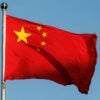This week, the U.S. and South Korea have initiated extensive joint military exercises and senior-level security meetings to project an image of strong solidarity, resolve, and deterrence to North Korea. Under normal circumstances, these actions would have accomplished their purpose.
Although the robust naval exercises display formidable military capabilities, they are overshadowed by the perception, if not the reality, that the U.S. postponed and then altered its military plans in deference to Chinese objections. Coupled with the impotent U.N. response to North Korea’s attack on the South Korean naval vessel Cheonan, the result is not a show of strength by the U.S. and South Korea, but rather an appearance of weakness.
The Daily Signal depends on the support of readers like you. Donate now
After media reports that Washington had acquiesced to Chinese pressure to move a U.S. carrier battle group’s scheduled deployment further from Chinese waters, the U.S. should have pointedly declared that it would send the USS George Washington into the West Sea and would conduct extensive anti-submarine exercises near the location of the Cheonan attack. Doing so would have been an irrefutable signal to both North Korea and China that the U.S. would resolutely take all necessary steps to defend its critical ally South Korea.
After it became apparent that the U.N. Security Council would not condemn North Korea’s heinous attack on the Cheonan, the Obama Administration should have immediately announced a new U.S. initiative to impose additional punitive economic measures against Pyongyang. Washington should publicly identify and target North Korean and other foreign agencies, banks, and businesses violating U.N. Resolution 1874. To date, the U.N. has been reticent to vigorously implement measures against North Korea’s WMD and missile programs, largely due to Chinese obstructionism.
Washington should not only take action against an expanded list of North Korean violators, but also the suppliers and recipients of illicit North Korean military goods, such as Burma, Syria, and Iran. Washington should then call on other responsible nations to match the U.S. effort.
Washington should insist that all nations fully implement U.N. sanctions in order to prevent North Korean procurement and export of missile-and WMD-related components and freeze the financial assets of any complicit North Korean or foreign person, company, bank, or government. The sanctions should be maintained until Pyongyang abandons the behavior that triggered the punitive actions.
Washington should also lead a global effort to enforce international law against North Korean illegal activities, including counterfeiting of currency and pharmaceuticals, illegal production and distribution of narcotics, and money laundering. The U.S. should identify and target North Korean government agencies such as Office 39, a special department that collects funds for Kim Jong Il’s personal use. Law enforcement, implementing U.N. resolutions, and combating proliferation should not be negotiable, nor politicized, for the sake of what may appear to be progress in the Six Party Talks.
Economic sanctions can be an effective tool by providing consequences for a country defying international agreements. If laws and U.N. resolutions are not enforced and defended, they cease to have value. There must be a heavy penalty for provocative actions that transgress the law.
As President Barack Obama commented last year, “Sanctions are a critical part of our leverage to pressure North Korea to act. If the North Koreans do not meet their obligations, we should move quickly to re-impose sanctions that have been waived and consider new restrictions going forward.” It is now time for the Obama Administration to initiate a more comprehensive program than the limited measures implemented last year.































